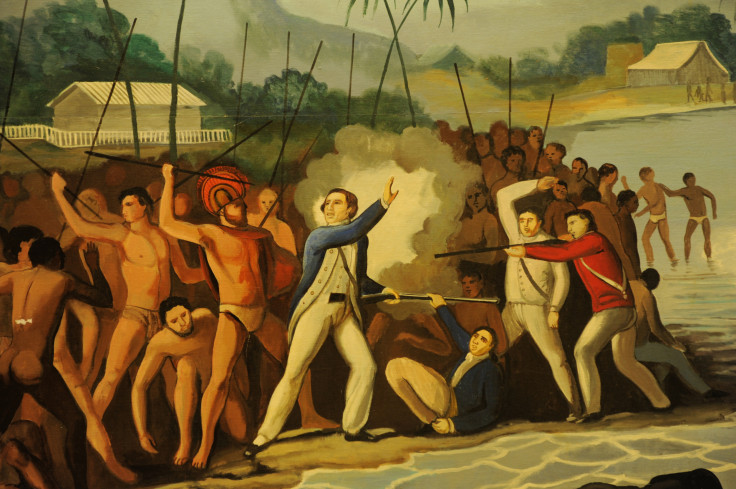Aboriginal spears taken by Captain James Cook to be returned to Australia
Cook and his team took away at least 40 spears from their traditional owners. Only four of these are known to exist today.

The University of Cambridge has finally decided to return the four Australian Aboriginal spears that were taken away by British explorer James Cook from their rightful owners centuries ago.
The spears belong to a set of 40 spears that were taken by Cook more than 250 years ago from Kamay, now known as Botany Bay in Sydney.
Cook first arrived in Australia in 1770 onboard HMB Endeavour along with his crew. They faced a challenge from the Gweagal clan of the Dharawal peoples as soon as they set foot at Botany Bay.
The Dharawal peoples are the traditional owners of the land and did not like the arrival of strangers. "In Dharawal culture, contact with strangers or spirits from the afterlife caused spiritual consequences and was mostly avoided by the general community," according to the National Museum of Australia.
Cook was able to finally land after a skirmish with two men from the Gweagal clan. The HMB Endeavour crew spent the next eight days collecting plants and trying to interact with the local people.
Cook and his team took away at least 40 spears from Kamay, and four of these have since been lying in the collection of the University of Cambridge's Museum of Archaeology and Anthropology. They were presented to the university in 1771, and just four of them are known to exist today. The spears were also loaned to Australian museums for short periods over the years.
"[We] threw into the house to them some beads, ribbands, cloths etc. as presents and went away. We however thought it no improper measure to take away with us all the lances [spears] which we could find about the houses, amounting in number to forty or fifty," Joseph Banks, one of the crew members wrote later in his diary.
Banks was an English naturalist and botanist. He managed to add several new specimens to his botanical collections during his time in Botany Bay.
The decision by Trinity College to return the spears follows decades of campaigning by the Gweagal people. Organisations such as the La Perouse Local Aboriginal Land Council have been trying for years to get the spears back.
"I haven't stopped smiling since I heard the news. To hear that they're coming back and they're coming back to stay is unimaginable," Noeleen Timbery, the chairperson of the local La Perouse Local Aboriginal Land Council, told The Guardian.
"It's something that we've worked at and it's something that we've been talking about for a really long time," Timbery said. The people of the Gweagal clan still make these spears since they hold spiritual importance for them.
The confirmation of the university's decision came on Thursday. "Trinity College has agreed to permanently return the four spears to the La Perouse Aboriginal community. The College is now approaching the UK's Charity Commission to obtain approval for this transfer of legal title," read a statement from the university.
"The spears are exceptionally significant. They are the first artefacts collected by any European from any part of Australia, that remain extant and documented. They reflect the beginnings of a history of misunderstanding and conflict. Their significance will be powerfully enhanced through return to the country," it added.
Once the UK's Charity Commission approves the move, the spears will be returned to Australia, where they will be displayed by the La Perouse community at a new visitor centre being built at Kurnell, Botany Bay.
Cook, who was born in rural Yorkshire in the north of England, was a famous British navigator and explorer. He managed to map the coastlines of large parts of newly-discovered areas in Oceania before dying in a violent clash with Native Hawaiians at Kealakekua Bay in 1779.
© Copyright IBTimes 2025. All rights reserved.






















